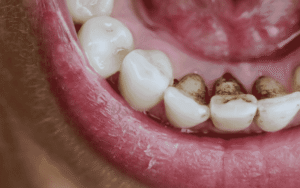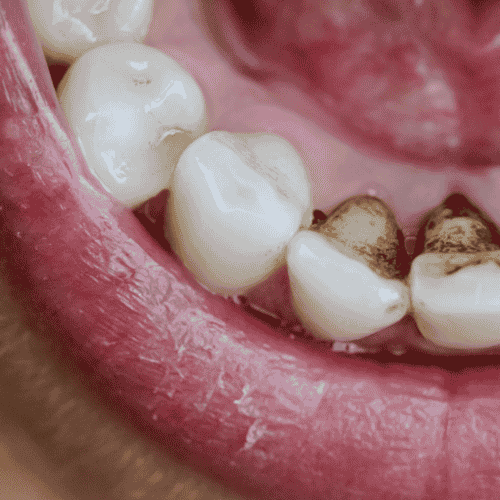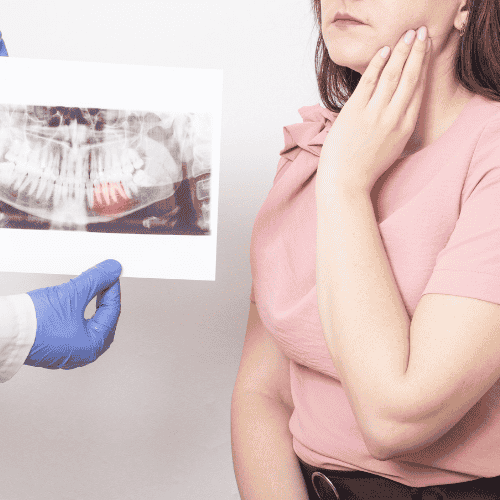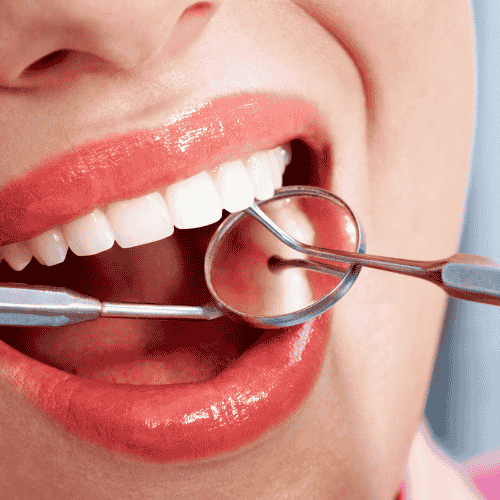Wisdom Teeth Pain Relief: Effective Ways to Soothe Discomfort Fast
Wisdom teeth pain could reduce your comfort and lower your quality of life. As third molars emerge, they may cause swelling, infection, pressure, and pain. Quick relief from wisdom tooth pain is important for both mild and severe issues. In this article, we’ll cover quick and long-term treatments for how to relieve pain in wisdom teeth. Let’s restore your oral health as soon as possible.
What Causes Wisdom Tooth Pain and When Does It Start?
Wisdom teeth (third molars) usually appear between 17 and 25. For some, this procedure feels nice. For others, it can cause a lot of discomfort. Understanding the causes enables you to determine effective treatments for how to treat wisdom teeth pain.
Several factors cause wisdom tooth pain, including:
- Impaction: Wisdom tooth pain often comes from not having enough space in the mouth for these molars. Teeth pushing through the gums can press on nearby tissues. This might make you hurt, swell up, and feel bad. Impaction puts a lot of stress on the teeth around it.
- Infection: When wisdom teeth are half-erupted or impacted, germs can enter the gums. This can lead to infection. Swelling, redness, and throbbing pain may result in an abscess.
- Inflammation: Pressure from the growing wisdom teeth may cause gum inflammation. The tooth pushing through the gum line can cause more pain and soreness.
- Cavities and Tooth Decay: Wisdom teeth can get cavities just like other teeth if you don’t take care of them. If the rot spreads to surrounding teeth, this may cause further pain. Those teeth may then be more prone to infections.
These disorders can cause pain when wisdom teeth emerge. However, the pain usually starts when the tooth breaks through the gums. This might take weeks or months, with the discomfort worsening. Early treatment for how to reduce pain of wisdom teeth is crucial to avoid more serious consequences.
Common Symptoms of Wisdom Tooth Pain You Shouldn’t Ignore
If you’re not sure how to stop wisdom tooth pain, look for its symptoms. They can vary, but some common signs can help you avoid bigger problems.
You should not ignore key symptoms of wisdom teeth pain:
- When the tooth comes in, inflammation of the gum line can make it hurt and be sensitive.
- If you have pain that gets worse when you chew or press, it’s probably because your teeth or gums are under stress.
- Wisdom teeth can put stress on nearby bones and tissues, which can hurt your jaw.
- If your wisdom teeth are impacted, they may make your jaw stiff, which makes it hard to open your mouth.
- A tooth that is only partially erupted may smell or taste bad if it gets infected or decayed.
- Impacted wisdom teeth can cause headaches by putting pressure on places close by.
If you have these symptoms, see a dentist to avoid problems. Early management may lessen wisdom teeth pain; consult a dentist.
At-Home Remedies for Wisdom Tooth Pain Relief
While waiting for expert treatment, there are numerous excellent at-home remedies for how to soothe pain from wisdom teeth. Increase gum health, decrease inflammation, and reduce discomfort with these solutions. The following home remedies for wisdom teeth pain are popular and effective:
Saltwater Rinse
A saltwater rinse is one of the easiest and most effective wisdom tooth pain remedy. Warm water and salt cleanse the region, decreasing swelling and encouraging healing. Infection risk is reduced by killing dangerous germs. Many times a day of rinsing might relieve gum pain.
Over-the-Counter Pain Relief
Wisdom tooth swelling and discomfort may be relieved with ibuprofen or acetaminophen, effective wisdom tooth pain medicines. Ibuprofen reduces gum swelling, while acetaminophen relieves pain. Always follow dose directions and visit your doctor to be sure these drugs are right for you.
Cold Compress
A cold compress on the outside of your cheek may numb and minimise swelling. Cold treatment effectively reduces inflammation and pain. Hold ice in a clean towel on the afflicted area for 15-20 minutes to relieve pain.
Peppermint Tea or Oil
Menthol in peppermint soothes and relieves pain. Peppermint tea and oil mixed with a carrier oil help reduce gum pain. This natural treatment is best for how to relieve wisdom tooth pain.
Clove Oil
Another numbing natural treatment for how to ease pain of wisdom tooth is clove oil. Eugenol relieves pain when administered. Use a cotton ball to gently apply clove oil to sore gums. Too much usage might cause irritation.
Aloe Vera
Aloe vera soothes and reduces inflammation. Fresh aloe vera gel on gums reduces inflammation and discomfort. Aloe vera is antimicrobial, helping you maintain dental hygiene while treating symptoms.
Tea Tree Oil
Tea tree oil is antiseptic and antibacterial, which may help reduce wisdom teeth discomfort from infections. Tea tree oil diluted with carrier oil should be gently applied to the gums. Avoid swallowing the oil, which is dangerous.
Thyme Oil
Pain and inflammation may be treated naturally with thyme oil. Antibacterial and antioxidant qualities may reduce swelling. A few drops of thyme oil mixed with a carrier oil may be applied to gums or used as a mouthwash.
Warm Compress
While cold treatment helps for some, a warm compress may help others. A warm compress on the exterior of your face increases blood flow, reducing discomfort and relaxing the jaw muscles.
Medications and Dental Treatments for Wisdom Teeth Pain
Finding treatment for how to cure wisdom tooth pain is crucial. At-home remedies may help with minor pain, but medicines and expert treatments can give more focused and long-term relief. If you have minor inflammation, infection, or impaction, knowing your pain treatment choices can help you make decisions.
Over-the-Counter Medications
- Acetaminophen: Acetaminophen (Tylenol) is extensively sold over-the-counter for pain management. It blocks brain pain impulses and is suggested for mild to severe pain. Following the proper dosage may prevent liver damage, particularly in large doses.
- Aspirin: Because it is an anti-inflammatory, aspirin can help with the pain and swelling that come with wisdom teeth. Taking more aspirin than your doctor says to or mixing it with other drugs could have bad effects. If you’re not sure, see a doctor.
- Benzocaine: Benzocaine applied to the skin may numb the gums and ease pain. It is in gels and ointments from a number of different brands. Benzocaine should not be given to children under two because it can have bad effects.
- Ibuprofen: NSAIDs, like Advil and Motrin, are non-steroidal anti-inflammatory drugs that help with pain, swelling, and inflammation. It works well to reduce swelling around wisdom teeth. To avoid side effects, take the exact amount of this medicine as directed.
Professional Dental Treatments
If over-the-counter medicines don’t work or the pain is severe, dental procedures may be needed.
- Antibiotics for Infections: Antibiotics may kill germs and prevent abscesses if an infection is causing discomfort. Amoxicillin and metronidazole cure tooth infections well together.
- Dental Anaesthesia: Local or general anaesthesia may be used for more invasive operations like wisdom teeth removal. Local anaesthesia numbs the tooth region, avoiding discomfort during extractions and other dental treatments, while general anaesthesia relaxes you in more difficult circumstances.
- Surgical Extraction: Surgery may be needed to remove wisdom teeth due to impaction, infection, or significant discomfort. Local anaesthesia is usually used, however sedation or general anaesthesia may be needed for patient comfort. Extraction treats the source of pain for long-term relief.
- Steroid Injections: For severe swelling or inflammation, steroid injections may relieve pain and swelling immediately. When other treatment options for how to stop wisdom teeth pain fail, these injections reduce wisdom tooth inflammation and give short-term comfort.
How to Manage Pain After Wisdom Teeth Removal
Wisdom teeth extraction usually causes pain. Post-procedure pain must be managed for proper healing. While your oral surgeon or dentist may provide specific care recommendations, here are some basic strategies to reduce pain and speed recovery after wisdom teeth extraction:
- Cold Compresses: In the days following therapy, cold compresses minimise swelling and pain. In the first 24–48 hours, cold compresses reduce inflammation and numb. Take breaks while compressing the outside of your cheek at the extraction site for 15-20 minutes.
- Follow-Up Appointments: Follow up with your dentist or oral surgeon. Healing and infection and dry socket monitoring need visits. You may prevent more serious healing issues by seeing your dentist early.
- Pain Medication as Prescribed: Your dentist can recommend painkillers. To prevent pain from becoming severe, use these medications as prescribed. Ibuprofen and acetaminophen may be used with prescription medicines, but follow your dentist’s dosage and timing.
- Rest and Limited Jaw Movement: Rest is crucial for healing. Jaw mobility is limited to reduce operative site discomfort. Avoid talking or yawning that might stress the afflicted region and eat soft, easy-to-chew meals. Taking it easy in the first several days speeds recovery.
- Antibacterial Mouthwash: Clean your mouth while recovering, but be cautious around extractions. Clean your mouth with antibacterial mouthwash to prevent infection. The dentist may recommend a prescription or over-the-counter mouthwash to reduce germs and speed surgical healing.
- Avoid Certain Foods and Behaviours: Avoid hard or crunchy meals that might irritate surgery sites to preserve recovery. Straws may dislodge the blood clot and cause a painful dry socket. Consult your dentist for recovery-friendly foods and activities.
- Take It Easy: Individuals recover differently following wisdom teeth removal. Some recover within days, some take longer. Rest and recovery are important. Avoid intense activity and concentrate on healing to enable your body to heal.
Potential Risks of Ignoring Wisdom Tooth Pain

Wisdom teeth often cause modest discomfort, but neglecting it might lead to more significant dental complications. Untreated wisdom teeth might produce issues that need more comprehensive treatment. Leaving wisdom tooth discomfort untreated may lead to:
- Infection: Causing infection, swelling, pain, fever, and the potential to spread to other regions of the mouth or jaw.
- Abscess Formation: Untreated infections may cause painful abscesses that harm surrounding tissues and teeth, needing rapid treatment.
- Damage to Neighbouring teeth: Over time, an impacted wisdom tooth may put stress on neighbouring teeth, causing misalignment, shifting, or dental rot.
- Cysts or Tumours: Impacted wisdom teeth may cause cysts or tumours that harm the jawbone and cause tooth loss.
- Jaw Damage: Bone grafting or jaw surgery may be needed for severe instances.
- Chronic pain: May cause headaches, earaches, and trouble opening your mouth.
When to See a Dentist for Wisdom Tooth Pain
Some pain is normal with wisdom teeth, but some symptoms mean there are bigger problems that need to be looked at by a doctor. Ignoring these signs could lead to infections, damage to your teeth, and problems with alignment. Call a dentist right away.
- If you have pain that doesn’t go away with over-the-counter drugs, it could be a sign of an infection, impaction, or another dental problem that needs to be treated right away.
- If you have swelling or a fever that doesn’t go away, it could be a sign of an illness that could spread. You should see a doctor if you have a fever and swelling.
- If you have trouble opening your mouth or chewing, it could mean that the wisdom tooth is affecting the jaw or nearby teeth, making it harder to move and more painful.
- If there is pus or an abscess around the wisdom teeth, it means there is an infection. You need to see a doctor to stop the abscess from spreading.
- Cysts or tumours near the wisdom teeth can hurt bone and tissue. Dentists need to look at these to see if there are any serious issues.
If you have any of these symptoms, see your dentist before it becomes worse.
Wisdom Teeth Removal Procedures and What to Expect
If your wisdom teeth hurt, you should see your dentist. It may be necessary to get a full-mouth X-ray (OPG) and a full checkup to look at the teeth and the tissues around them. A dentist may propose one of the following treatments for how to reduce wisdom tooth pain to you:
- In-Chair Wisdom Teeth Extraction: Your dentist numbs the area with local anaesthesia in the office, making the extraction simple and rapid.
- Specialist In-Chair Wisdom Teeth Removal: An oral surgeon may do difficult extractions in the dentist office utilising modern procedures.
- In-Chair Sedation: May calm and relieve pain for anxious or uncomfortable individuals.
What to Expect During and After the Procedure
Your dentist will discuss anaesthesia or sedation before the treatment. Painkillers and cold compresses can reduce swelling and discomfort. Follow your dentist’s aftercare recommendations on how to help wisdom tooth pain.
Regular care is necessary to keep your teeth healthy and avoid problems after having your wisdom teeth taken out. Here are some tips for keeping your mouth clean and avoiding problems:
- Regular Check-ups: You should go to the dentist often, especially if you’re waiting to have your wisdom teeth taken out. Taking care of your wisdom teeth and your mouth may help you avoid big problems.
- Pain Management: You need to see a dentist right away if you have chronic pain, headaches, bloody saliva, or gum abscesses.
- X-Rays and Monitoring: The American Dental Association advises frequent wisdom teeth X-rays and monitoring to detect concerns early, even without extraction.
You can manage wisdom tooth extraction pain with the right care and attention from a dentist. Both natural and pharmaceutical medications may ease pain. Consult your dentist before trying new treatments, especially if you use other medicines.














